小学英语专项训练课件-一般疑问句_通用版
- 格式:ppt
- 大小:2.48 MB
- 文档页数:7
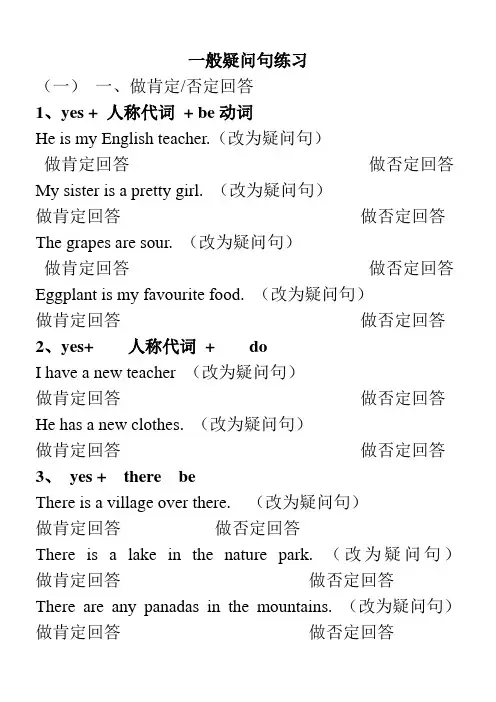
一般疑问句练习(一)一、做肯定/否定回答1、yes + 人称代词+ be动词He is my English teacher.(改为疑问句)做肯定回答做否定回答My sister is a pretty girl. (改为疑问句)做肯定回答做否定回答The grapes are sour. (改为疑问句)做肯定回答做否定回答Eggplant is my favourite food. (改为疑问句)做肯定回答做否定回答2、yes+ 人称代词+ doI have a new teacher (改为疑问句)做肯定回答做否定回答He has a new clothes. (改为疑问句)做肯定回答做否定回答3、yes + there beThere is a village over there. (改为疑问句)做肯定回答做否定回答There is a lake in the nature park. (改为疑问句)做肯定回答做否定回答There are any panadas in the mountains. (改为疑问句)做肯定回答做否定回答二缩写Who is: is not: they are: What is:are not:you are: Where is:do not:I am: He is:does not:I would like: She is:can not:There is there are四、句子翻译1、你有新老师吗?2、他很严格么?3、今天是星期几?4、今天星期四。
5、什么是你最喜爱的食物?6、你会做什么?7、这是我的新房间8、这是我的妈妈。
9、你会做什么?一般疑问句练习:情况1: Be(是) am is are 先用be的适当形式填空然后按照要求变换句型I ____ a student.一般疑问句:_____________________________________ 肯定回答:_____________________________否定回答:__________________________________You _____ a teacher.一般疑问句:____________________________________ 肯定回答:__________________否定回答:_____________________________________He ____ a doctor.一般疑问句:____________________________________ 肯定回答:____________否定回答:_________________________________________ she a nurse?陈述句:_______________________________肯定回答:_______________否定回答:__________________________________ we happy?陈述句:_______________________________肯定回答:______________否定回答:____________________________You _____ good workers.一般疑问句:_______________________________肯定回答:_________________否定回答:____________________________They _____ workers.一般疑问句:_______________________________肯定回答:__________否定回答:__________________________________ (它是) an apple.一般疑问句:_______________________________肯定回答:____________否定回答:___________________________情况2:部分情态动词can后面动词用原型。
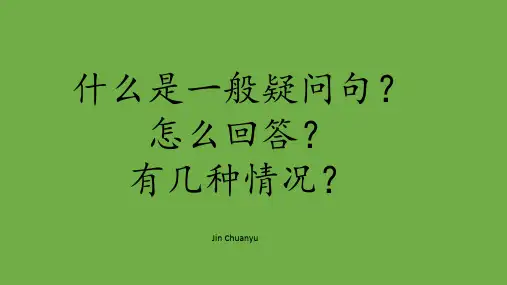
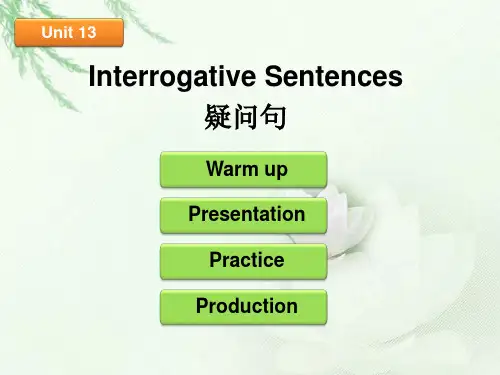
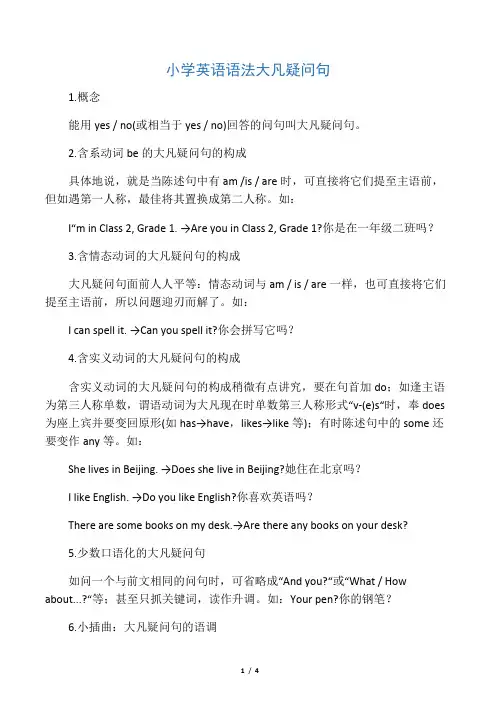
小学英语语法大凡疑问句1.概念能用yes / no(或相当于yes / no)回答的问句叫大凡疑问句。
2.含系动词be的大凡疑问句的构成具体地说,就是当陈述句中有am /is / are时,可直接将它们提至主语前,但如遇第一人称,最佳将其置换成第二人称。
如:I“m in Class 2, Grade 1. →Are you in Class 2, Grade 1?你是在一年级二班吗?3.含情态动词的大凡疑问句的构成大凡疑问句面前人人平等:情态动词与am / is / are一样,也可直接将它们提至主语前,所以问题迎刃而解了。
如:I can spell it. →Can you spell it?你会拼写它吗?4.含实义动词的大凡疑问句的构成含实义动词的大凡疑问句的构成稍微有点讲究,要在句首加do;如逢主语为第三人称单数,谓语动词为大凡现在时单数第三人称形式“v-(e)s“时,奉does 为座上宾并要变回原形(如has→have,likes→like等);有时陈述句中的some还要变作any等。
如:She lives in Beijing. →Does she live in Beijing?她住在北京吗?I like English. →Do you like English?你喜欢英语吗?There are some books on my desk.→Are there any books on your desk?5.少数口语化的大凡疑问句如问一个与前文相同的问句时,可省略成“And you?“或“What / How about...?“等;甚至只抓关键词,读作升调。
如:Your pen?你的钢笔?6.小插曲:大凡疑问句的语调大部分的大凡疑问句都应读作升调(↗),并落在最后一个单词身上。
如:Is it a Chinese car↗?7.大凡疑问句的应答用yes / no(或相当于yes / no的词)回答,并怎么问怎么答(句首为情态动词am / is / are还是do/does),简略回答时要注意缩写(否定的n“t)和采用相应的人称代词以避免重复:即“Yes,主语(代词)+情态动词或am / is / are或do / does.“表示肯定;“No,主语(代词)+情态动词或am / is / are或者do / doesnot(n“t).“表示否定。
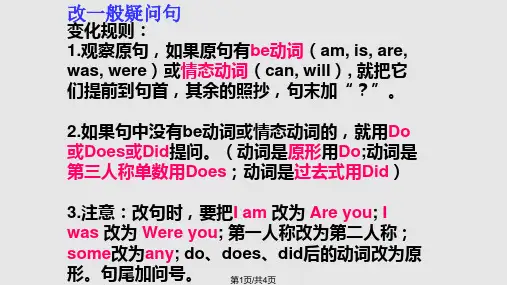
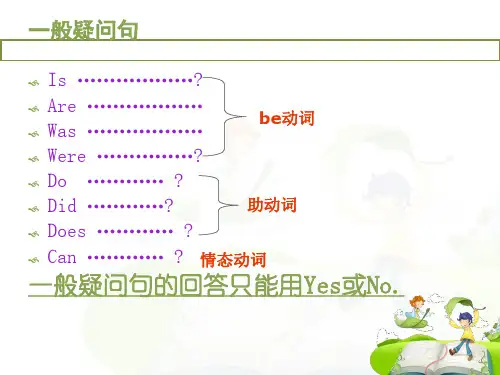
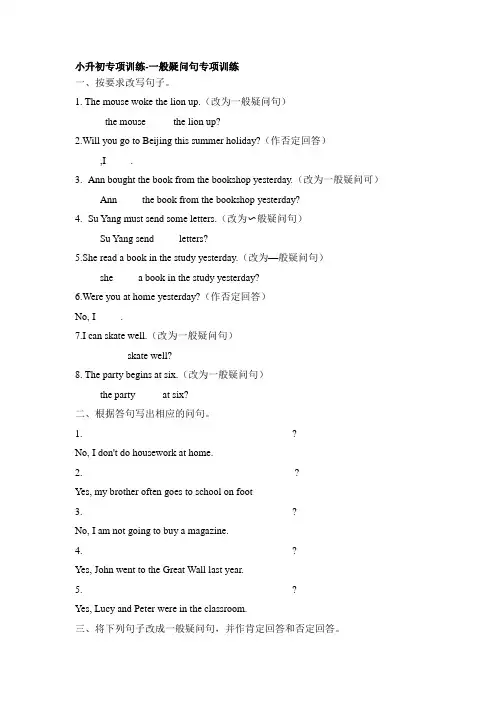
小升初专项训练-一般疑问句专项训练一、按要求改写句子。
1. The mouse woke the lion up.(改为一般疑问句)_____the mouse_____ the lion up?2.Will you go to Beijing this summer holiday?(作否定回答)_____,I_____.3.Ann bought the book from the bookshop yesterday.(改为一般疑问可)_____Ann_____the book from the bookshop yesterday?4.Su Yang must send some letters.(改为〜般疑问句)_____Su Yang send_____letters?5.She read a book in the study yesterday.(改为—般疑问句)_____she_____a book in the study yesterday?6.Were you at home yesterday?(作否定回答)No, I_____.7.I can skate well.(改为一般疑问句)_____ _____skate well?8. The party begins at six.(改为一般疑问句)_____the party_____ at six?二、根据答句写出相应的问句。
1.__________________________________________?No, I don't do housework at home.2. __________________________________________?Yes, my brother often goes to school on foot3.__________________________________________?No, I am not going to buy a magazine.4.__________________________________________?Yes, John went to the Great Wall last year.5.__________________________________________?Yes, Lucy and Peter were in the classroom.三、将下列句子改成一般疑问句,并作肯定回答和否定回答。
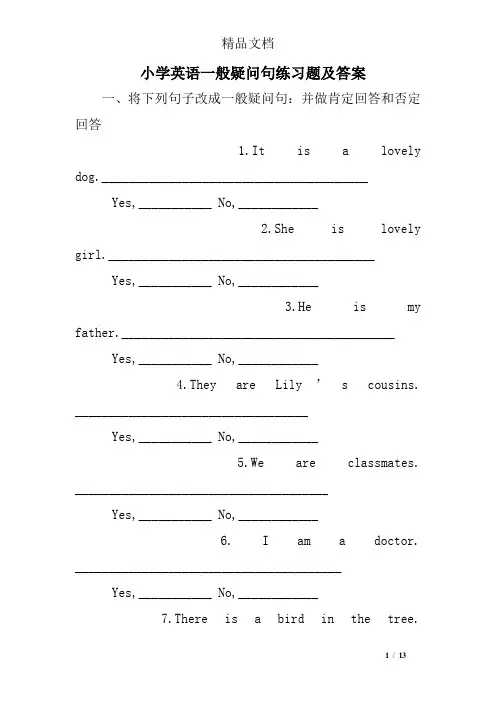
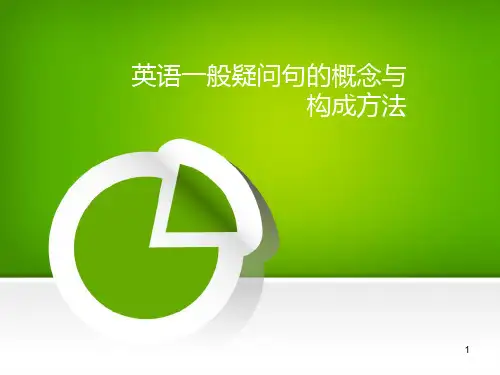
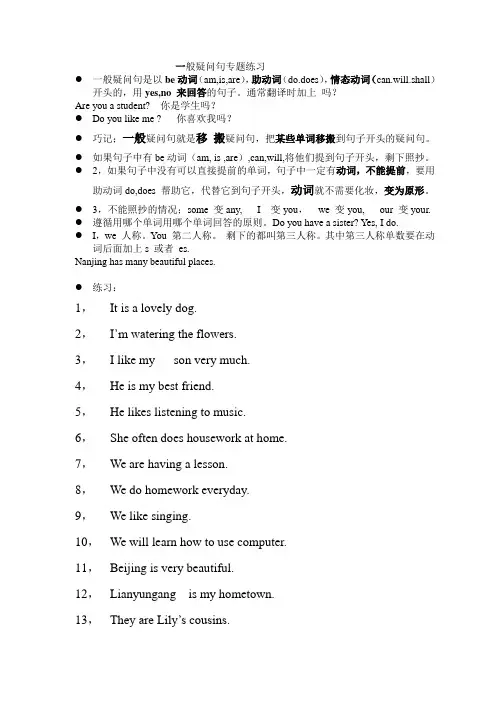
一般疑问句专题练习●一般疑问句是以be动词(am,is,are),助动词(do.does),情态动词(can.will.shall)开头的,用yes,no 来回答的句子。
通常翻译时加上吗?Are you a student? 你是学生吗?●Do you like me ? 你喜欢我吗?●巧记;一般疑问句就是移搬疑问句,把某些单词移搬到句子开头的疑问句。
●如果句子中有be动词(am, is ,are),can,will,将他们提到句子开头,剩下照抄。
●2,如果句子中没有可以直接提前的单词,句子中一定有动词,不能提前,要用助动词do,does 帮助它,代替它到句子开头,动词就不需要化妆,变为原形。
●3,不能照抄的情况;some 变any, I 变you,we 变you, our 变your.●遵循用哪个单词用哪个单词回答的原则。
Do you have a sister? Yes, I do.●I,we 人称。
You 第二人称。
剩下的都叫第三人称。
其中第三人称单数要在动词后面加上s 或者es.Nanjing has many beautiful places.●练习:1,It is a lovely dog.2,I’m watering the flowers.3,I like my son very much.4,He is my best friend.5,He likes listening to music.6,She often does housework at home.7,We are having a lesson.8,We do homework everyday.9,We like singing.10,We will learn how to use computer.11,Beijing is very beautiful.12,Lianyungang is my hometown.13,They are Lily’s cousins.14,It means nothing.15,There is a bird in the tree.16,There are many stars in the sky.17,I play computer games every night18,We have a pleasant home19,We like to climb the mountain20,They walk to school every morning21,It is a beautiful park22,It is a beautiful park23,They go to church on Sunday用do does be 填空1)_____ she know all the answers ? Yes , she _ . No, she __.2)_____ the twins often fight ? Yes ,___ do. No, _____ don’t.3)_____ your dad like listening to music? Yes ,____ . No, _____.4)_____ uncle Tom wash his car everyday? Yes , ____ . No, ____5)_____ you have a new teacher? Yes , ______. No, _____6)_____ she a teacher? Yes, she _____ . No, she _____.7)______ you playing ball now? Yes, I ______. No, I ______.8)_____ the pig like to sleep? Yes, it ______. No, it _____9)______ five birds flying in the sky? Yes, ----. No-----10)_____ your father smoking in the livingroom?。
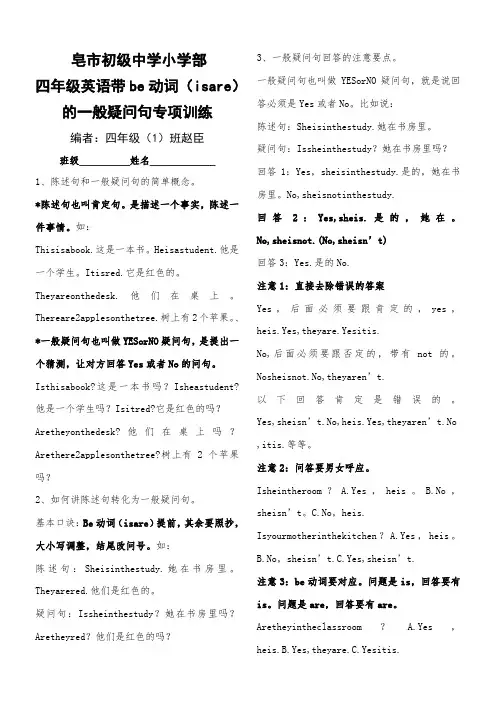
皂市初级中学小学部四年级英语带be动词(isare)的一般疑问句专项训练编者:四年级(1)班赵臣班级__________姓名_____________1、陈述句和一般疑问句的简单概念。
**吗?2基本口诀:Be动词(isare)提前,其余要照抄,大小写调整,结尾改问号。
如:陈述句:Sheisinthestudy.她在书房里。
Theyarered.他们是红色的。
疑问句:Issheinthestudy?她在书房里吗?Aretheyred?他们是红色的吗?3、一般疑问句回答的注意要点。
一般疑问句也叫做YESorNO疑问句,就是说回答必须是Yes或者No。
比如说:陈述句:Sheisinthestudy.她在书房里。
疑问句:Issheinthestudy?她在书房里吗?回答1:Yes,sheisinthestudy.是的,她在书在。
yes,的。
的。
’t.NoB.No,sheisn’t。
C.No,heis. Isyourmotherinthekitchen?A.Yes,heis。
B.No,sheisn’t.C.Yes,sheisn’t.注意3:be动词要对应。
问题是is,回答要有is。
问题是are,回答要有are。
Aretheyintheclassroom? A.Yes,heis.B.Yes,theyare.C.Yesitis.Isheinthestudy? A.Yes,heis.B.Yes,theyare.C.Yesitis.训练1:()1.Ishe10yearsold?A.Yes,heisn’t.B.No,hei sn’t.(2.Iss.((()5.Isyourmotherateacher?A.Yes,sheare.B.No ,heisn’t..C.Yes,sheis.训练2:()1.Arethebananasyellow?A.Yes,theyare.B.No ,theyare.C.Yes,itis.()2.Aretheypencils?A.Yes,theyaren’t.B.No, theyare.C.Yes,theyare.))C.Yes)C.Ye训练3:()1.Isheinthebedroom?A.Yes,heis.B.No,heis.C.Yes,sheis.()2.IssheLucy?A.Yes,sheisn’t.B.No,heisn’t.C.Yes,shei s.()3.Aretheteachersatschool?A.Yes,theyare.B .No,itis.C (n’t.do.(’t.eyare.(s,thisis.C.Ye s,itis.()2.Areyouaboy?A.Yes,youare.B.No,youaren’t.C.Yes,Iam.()3.Isthereabooknearthepen?A.Yes,itis.B.Ye s,thereis.C .Yes,Iam.()4.Isheadoctor?A.Yes,heisateacher.B.No,he)________________________________________ ________________________________3.Isthereadogunderthesofa?(改成陈述句)________________________________________ ________________________________4.AretheEnglishbooksontheteacher’sdesk? (英译中)________________________________________ ________________________________5.我的书包在哪里?它在床上吗?(中译英)________________________________________ _________________________________。
小学英语一般疑问句及特殊疑问句专项练习一、一般疑问句1、定义: 用Yes或No作答的疑问句叫一般疑问句。
2、特点:①以be动词、助动词或情态动词开头;例:Is your father a teacher? Does Tom like apples? Can Jenny speak English? ②往往读升调3、陈述句变成一般疑问句的方法:1> 看陈述句中有没有be动词(am、is、are、was、were)或情态动词(can),如果有,将其提到句首,句末打上问号即可。
例:It was rainy yesterday.→Was it rainy yesterday?Tom's father can play the piano.→Can Tom's father play the piano?2>如果句中没有be动词或情态动词,句首加do的相应形式(do、does、did),且原句的谓语动词要变回原形。
1.They go to school by bike. →Do they go to school by bike?2.Bill gets up at 6:30 every day. →Does bill gets up at 6:30 every day?3.The students saw a film yesterday. →Did the students see a film yesterday?注: 1.如果陈述句中有第一人称,则变问句时要变为第二人称。
I usually have lunch at school. →Do you usually have lunch at school?2.如果陈述句中有some, 则变问句时往往要变成any 。
There is some water on the playground. →Is there any water on the playground4、一般疑问句的回答。
一般疑问句练习(一)一、做肯定/否定回答 1、yes + 人称代词 + be动词He is my English teacher.(改为疑问句)做肯定回答做否定回答My sister is a pretty girl. (改为疑问句)做肯定回答做否定回答The grapes are sour. (改为疑问句)做肯定回答做否定回答Eggplant is my favourite food. (改为疑问句)做肯定回答做否定回答2、yes + 人称代词 + haveI have a new teacher (改为疑问句)做肯定回答做否定回答He has a new clothes. (改为疑问句)做肯定回答做否定回答3、yes + there + be动词There is a village over there.(改为疑问句)做肯定回答做否定回答There is a lake in the nature park. (改为疑问句)做肯定回答做否定回答There are any panadas in the mountains. (改为疑问句)做肯定回答做否定回答二、缩写 Who is : is not : they are: What is:are not: you are: Where is: do not: I am: He is: does not: I would like: She is:must not: can not:There is there are 三、星期名词填空:一般疑问句练习:情况1: Be(是) am is are先用be的适当形式填空然后按照要求变换句型I ____ a student.一般疑问句:_____________________________________肯定回答:_____________________________否定回答:__________________________________ You _____ a teacher.一般疑问句:____________________________________肯定回答:__________________否定回答:_____________________________________He ____ a doctor.一般疑问句:____________________________________肯定回答:____________否定回答:_________________________________________ she a nurse?陈述句:_______________________________肯定回答:_______________否定回答:__________________________________ we happy?陈述句:_______________________________肯定回答:______________否定回答:____________________________You _____ good workers.一般疑问句:_______________________________肯定回答:_________________否定回答:____________________________They _____ workers.一般疑问句:_______________________________肯定回答:__________否定回答:__________________________________ (它是) an apple.一般疑问句:_______________________________肯定回答:____________否定回答:____________________________情况2:部分情态动词can后面动词用原型。
一般疑问句练习(一)一、做肯定/否定回答 1、yes + 人称代词 + be动词He is my English teacher.(改为疑问句)做肯定回答做否定回答My sister is a pretty girl. (改为疑问句)做肯定回答做否定回答The grapes are sour. (改为疑问句)做肯定回答做否定回答Eggplant is my favourite food. (改为疑问句)做肯定回答做否定回答2、yes + 人称代词 + haveI have a new teacher (改为疑问句)做肯定回答做否定回答He has a new clothes. (改为疑问句)做肯定回答做否定回答3、yes + there + be动词There is a village over there.(改为疑问句)做肯定回答做否定回答There is a lake in the nature park. (改为疑问句)做肯定回答做否定回答There are any panadas in the mountains. (改为疑问句)做肯定回答做否定回答二、缩写 Who is : is not : they are: What is:are not: you are: Where is: do not: I am: He is: does not: I would like: She is:must not: can not:There is there are 三、星期名词填空:一般疑问句练习:情况1: Be(是) am is are先用be的适当形式填空然后按照要求变换句型I ____ a student.一般疑问句:_____________________________________肯定回答:_____________________________否定回答:__________________________________ You _____ a teacher.一般疑问句:____________________________________肯定回答:__________________否定回答:_____________________________________He ____ a doctor.一般疑问句:____________________________________肯定回答:____________否定回答:_________________________________________ she a nurse?陈述句:_______________________________肯定回答:_______________否定回答:__________________________________ we happy?陈述句:_______________________________肯定回答:______________否定回答:____________________________You _____ good workers.一般疑问句:_______________________________肯定回答:_________________否定回答:____________________________They _____ workers.一般疑问句:_______________________________肯定回答:__________否定回答:__________________________________ (它是) an apple.一般疑问句:_______________________________肯定回答:____________否定回答:____________________________情况2:部分情态动词can后面动词用原型。